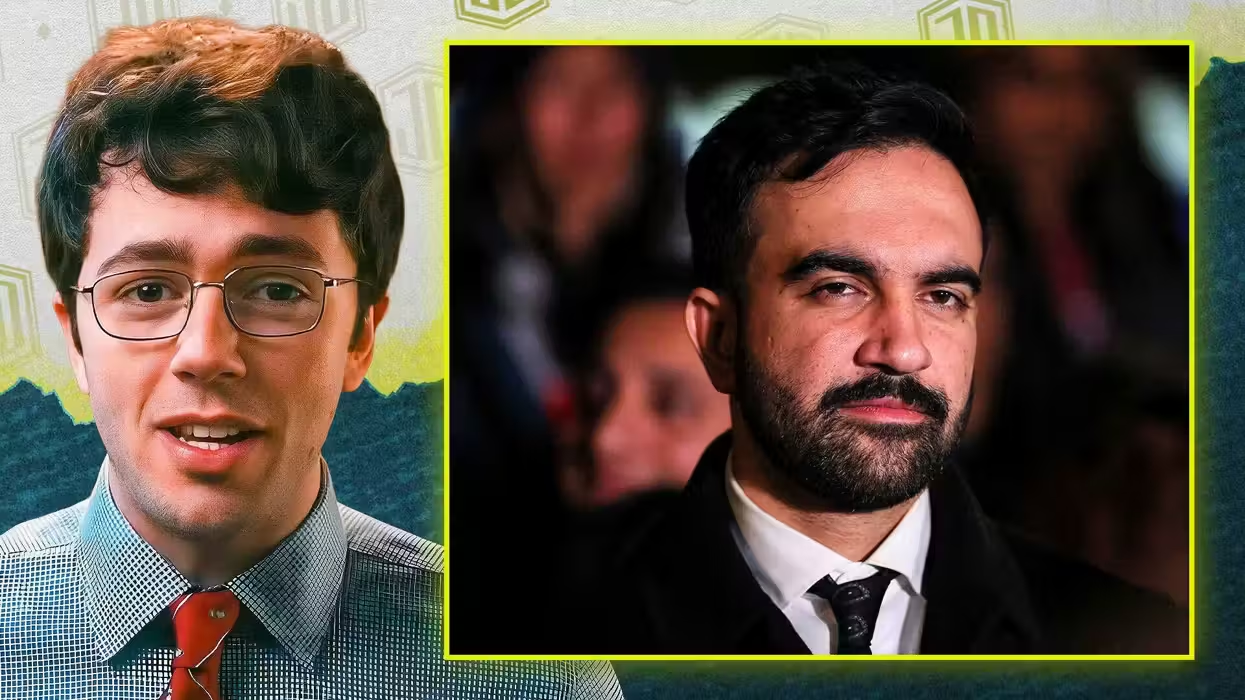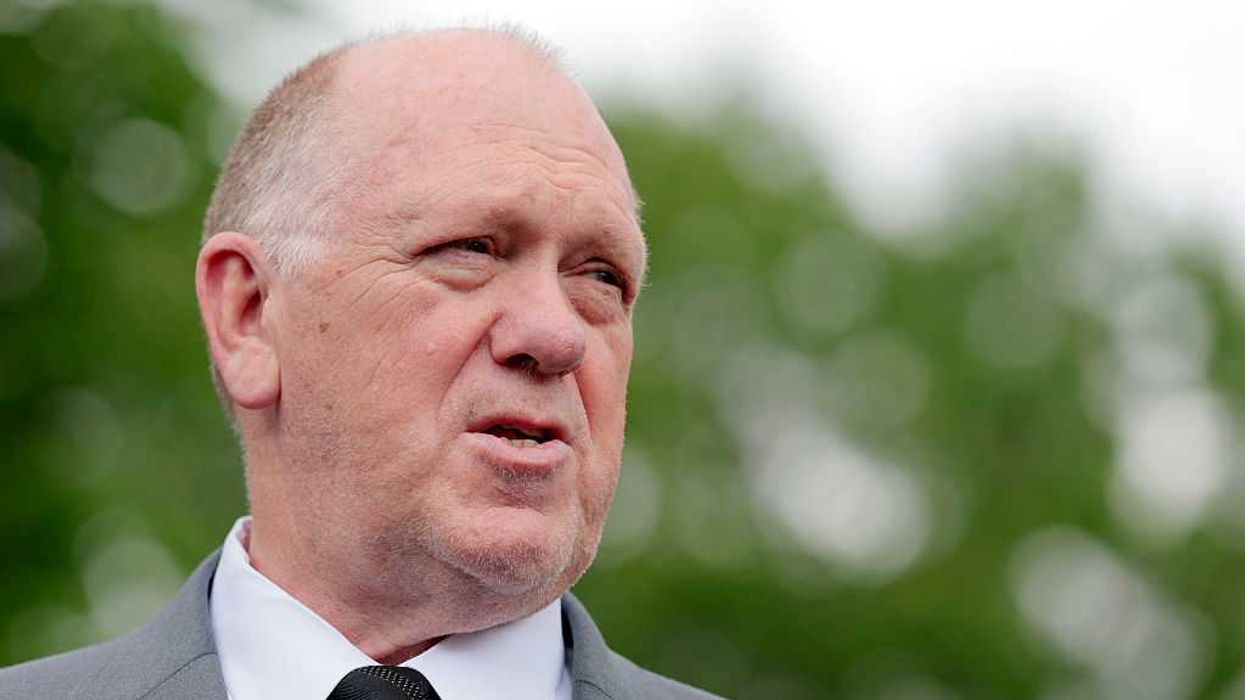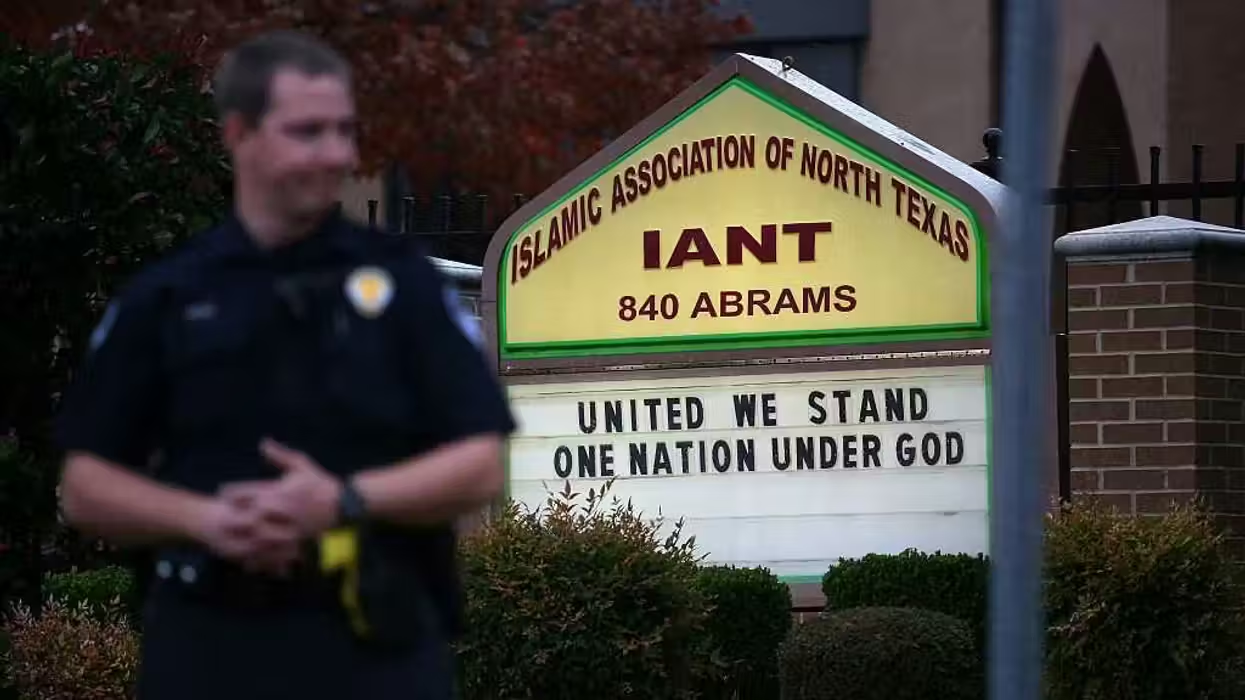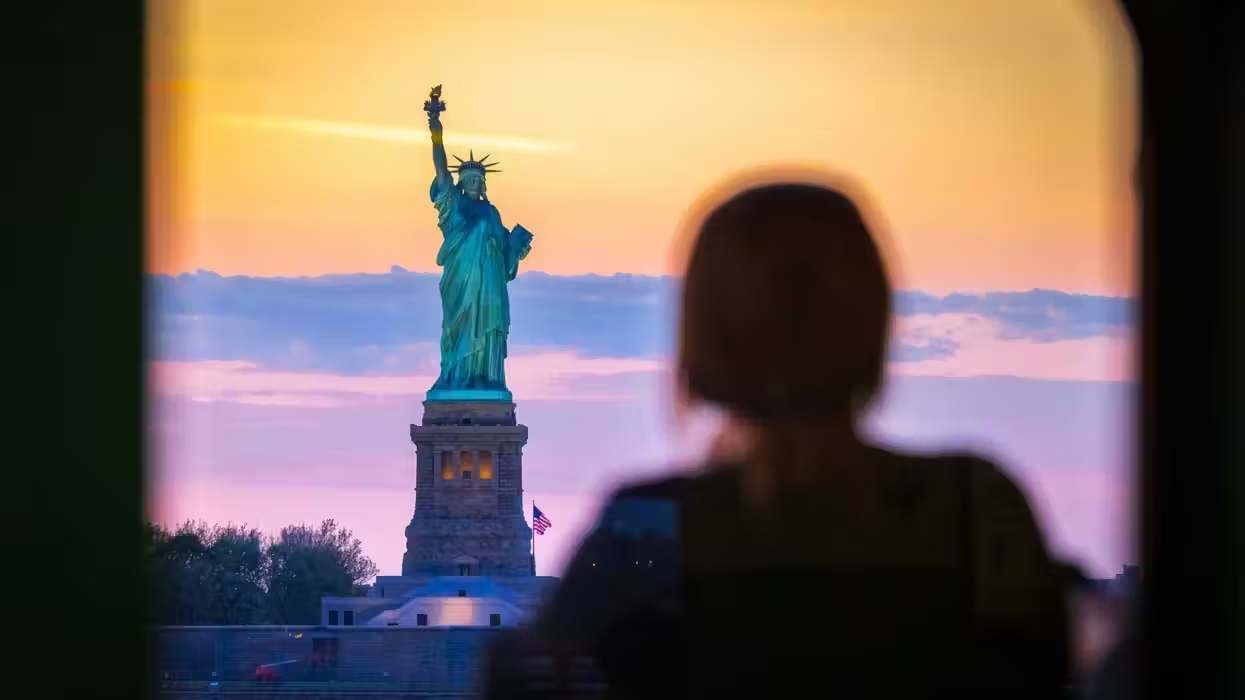© 2025 Blaze Media LLC. All rights reserved.
Whitewashing the Black Panthers? Winston-Salem Honors Violent 60s Revolutionaries' 'Good Deeds
October 16, 2012
"We want land, bread, housing, education, clothing, justice, peace and people's community control of modern technology."
On Sunday, the city of Winston-Salem, NC honored the Black Panthers with a historical marker. There was an official unveiling ceremony complete with speeches from local elected officials and former Black Panthers.

Photo Credit: Winston-Salem Journal
The plaque reads:
In 1969, the city of Winston-Salem, NC became the first southern city with a chapter of the Black Panther Party. Nationally and locally, the Black Panthers sought to protect African-American neighborhood from police brutality: the volatility of the times often lead to confrontation with the police. Later the chapter offered community service programs; including free breakfasts for children, sickle-cell anemia testing, and the Joseph Waddell People’s Free Ambulance Service, which received national attention. These programs brought meaningful change to Winston-Salem during a time of social and political upheaval and lent validation to the Chapter’s slogan, “Power to the people – right on.” Members of the Winston-Salem Chapter would later serve the community as ministers, teachers, politicians, and community organizers.
How did an organization that is often associated with violence, socialism, and the forced destruction of capitalism come to be honored by the Historic Resources Commission of Winston-Salem? Mark Maxwell, who chairs the 12-person committee that selects the two sites that will be honored each year, spoke with the local paper about the selection. The Winston-Salem Journal reports:
Most members of the commission were familiar with the violent past of the national Panther Party, Maxwell said.But once they learned of the local Panthers' positive impact on the community, their views shifted, she said.
"We felt we had an organization that had a story," Maxwell said.
Derwin Mongomery is the Council member who suggested the tribute. Mr. Montgomery explained his reasoning to the Journal:
"You had some who chose a passive stance, the nonviolent approach, and those who chose the Malcolm X or Black Panther Party approach," he said. "We recognize much from the nonviolent portion of the movement but there are also positive things that came out from the other side as well."
It should be noted that the year before Winston-Salem formed its chapter of the Black Panthers, the group was recruiting new members by using a propaganda film entitled "Off The Pig." Less than two years after the Panthers set up camp in Winston-Salem, there were reports of armed confrontations with the local police department, including one exchange of gunfire between the police and the Black Panthers at their headquarters.
Stanford University has an extensive collection that covers the history of the Black Panther movement in America, including the 10 planks of the party's platform from 1966 and 1972. Both lists sound more like the platform of a communist or socialist regime.
- We want full employment for our people.
- We want an end to the robbery by the white man of our Black Community. (In 1972 "Capitalist" replaced "white man.")
- We want decent housing, fit for shelter of human beings.
- We want all black men to be exempt from military service. (In 1972 this was replaced with a demand for "completely free health care for all Black and oppressed people.")
- We want freedom for all black men held in federal, state, county and city prisons and jails.
- We want land, bread, housing, education, clothing, justice, peace and people's community control of modern technology.
The complete platform text from 1972 is quite specific as it concerns the Black Panthers expectations:
We believe that the federal government is responsible and obligated to give every person employment or a guaranteed income. We believe that if the American businessmen will not give full employment, then the technology and means of production should be taken from the businessmen and placed in the community so that the people of the community can organize and employ all of its people and give a high standard of living.
There are also demands for reparations to be paid, in cash, by the government. Additionally, housing should be taken from landlords and given to the people.
As you might expect, a portion of Winston-Salem's population does not agree with the honor bestowed upon a group that called for the shooting of police, emptying of the prisons, and complete redistribution of wealth in America. Most of the comments to the story on the newspaper's website reflected this sentiment.

Screen cap from Winston-Salem Journal
Many people who heard about the story wondered if the KKK or NAZIs would be receiving similar honors from the city. That's unlikely. However, a little investigation into the history of Winston-Salem and the KKK and the NAZIs reveals that both groups had chapters that were active in the area for much longer than the Black Panthers.
Should the city of Winston-Salem have honored the Black Panthers for the good works? Join the conversation in our comments section.
Want to leave a tip?
We answer to you. Help keep our content free of advertisers and big tech censorship by leaving a tip today.
Want to join the conversation?
Already a subscriber?
more stories
Sign up for the Blaze newsletter
By signing up, you agree to our Privacy Policy and Terms of Use, and agree to receive content that may sometimes include advertisements. You may opt out at any time.
Related Content
© 2025 Blaze Media LLC. All rights reserved.
Get the stories that matter most delivered directly to your inbox.
By signing up, you agree to our Privacy Policy and Terms of Use, and agree to receive content that may sometimes include advertisements. You may opt out at any time.






